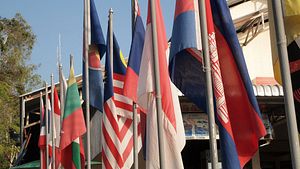As ASEAN approaches the commemoration of its 50th anniversary next year, one of the key things to watch will be the organization’s progress in admitting an eleventh member: Timor-Leste. With Dili’s admission gaining traction over the past few years, it is worth looking more closely at the dynamics at play.
Expansion in ASEAN
Expansion is far from a new thing in ASEAN. Indeed, the ten-member regional grouping began with only five founding countries – Indonesia, Malaysia, Philippines, Singapore and Thailand – signing the Bangkok Declaration in the Thai capital on August 8, 1967. Brunei joined ASEAN in 1984 after resuming full independence, followed by Cambodia, Laos, Myanmar and Vietnam (the so-called CLMV countries) in the 1990s.
Nor has it been without controversy. Indeed, as I repeatedly emphasize to outside observers overly fixated on divisions within the grouping on issues like the South China Sea, a key source of these differences lies in ASEAN’s decision to admit new members in 1990s despite concerns raised at the time ranging from these countries’ limited capacity to how they would slow regional integration. As ASEAN has taken some bold steps in its evolution as an institution in the years that followed – from the signing of the ASEAN Charter in 2007 to the formal declaration of an ASEAN Community in 2015 – we have seen both the benefits and the costs of its enlargement.
The Timor-Leste Case
Little wonder, then, that when Timor-Leste expressed its desire to join ASEAN soon after its independence in 2002, it was greeted with initial caution from several of the grouping’s members. Though there were in fact several different concerns, the dominant one was all-too-familiar: that Dili’s capacity was limited and that its admission now could further complicate community-building efforts.
Over the years since, however, ASEAN members have all accepted the idea of Timor-Leste’s eventual admission into ASEAN. The main hurdle was cleared back in 2011, when Indonesia agreed to support this during its chairmanship under former President Susilo Bambang Yudhoyono. But even those previously hesitant about Dili’s membership, most notably Singapore, have gradually been warming to the notion, even though there continue to be differences as to how soon this should occur.
Process-wise, Timor-Leste’s accession is now all but assured. The feasibility studies commissioned on the impact of Dili’s admission on each of the three pillars of the ASEAN Community – the ASEAN Political-Security Community, the ASEAN Economic Community, and the ASEAN Socio-Cultural Community – have now all been completed. Dili has also established embassies in all ASEAN capitals and improved its ability to host ASEAN meetings and summits in recent years.
A case in point was Timor-Leste’s recent hosting of the ASEAN People’s Forum (APF). Though this was the product of Laos’ disappointing, if unsurprising, reluctance to host a regular meeting of Southeast Asian civil society organizations as ASEAN chair, Dili’s successful hosting of the meeting has been a boost for its admission as well.
The Road Ahead
The key question now is when exactly admission will occur. The next holders of the ASEAN chair, which rotates annually, are the Philippines in 2017 and Singapore in 2018. Manila could push things further next year, especially given the close ties between the two countries. But should Dili not cross the finish line by the end of 2017, that means it may have to wait till 2018 for Singapore’s chairmanship. The city-state had been the main holdout in approving Dili’s accession.
But regional factors are hardly the only ones that will shape Timor-Leste’s admission into ASEAN. Domestically, the country is set for elections next year. Even though we are still months away from polls, some are already worrying about either a return to political bickering or the domination of a national unity government without a meaningful opposition. While it is certainly true that many current ASEAN members have democracy woes of their own, democratic backsliding in Timor-Leste could nonetheless end up coloring perceptions about its admission.
In the meantime, it will be interesting to watch how Dili is gradually eased into ASEAN. One marker of that, for example, is the extent to which it is allowed to attend ASEAN meetings, and the nature of the engagements it is involved in. Though the ASEAN chairman’s statement following the latest round of summitry in September noted that “a number of sectoral bodies” have been exploring the possibility of Timor-Leste participating in their activities, a source familiar with the process noted that there have been disagreements about how this will actually play out.
It should also be noted that, as with previous new ASEAN admissions, the issues surrounding Timor-Leste’s entry into the regional grouping will continue to play out years after it joins. As other cases have shown, beyond the rhetoric of an ever-expanding ASEAN family, the widening of the regional tent has brought the grouping its fair share of challenges, whether it be its increased exposure to great power rivalry, additional problems with respect to democracy and human rights, or even the ability of new members to host the meetings central to advancing its work.

































